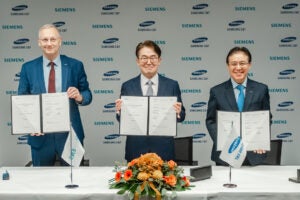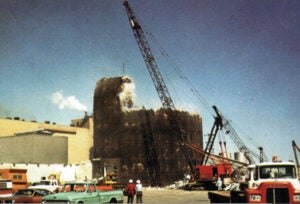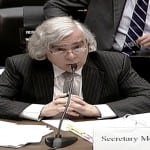In the opening move of what is certain to be a long and contentious process, Sen. Lisa Murkowski (R-Alaska), chairman of the Senate Energy and Natural Resources (ENR) Committee, introduced a suite of bills covering a broad range of energy issues, from infrastructure to regulatory reform to civil enforcement. Along with several others introduced by other ENR committee members, the bills are intended to form the outlines of comprehensive energy legislation she has been promising since taking the committee chairmanship this year.
The 17 bills, S.1215 through S.1231, available for review on the committee web site, touch on nearly every aspect of energy policy and overlap with many of the proposals in the Department of Energy (DOE) Quadrennial Energy Review (QER) released in late April.
Distributed generation (DG) and net metering come in for substantial attention. S.1219 seeks to ensure more equitable, efficient treatment of distributed resources by requiring states to examine how they contribute to reliability and to update their regulations to make interconnection more reliable and efficient. In particular, states would be directed to assess net metering programs to consider effects on customers without DG, and determine whether net metering rates are “just and reasonable” and “not unduly preferential or discriminatory.”
Murkowski, at a press briefing announcing the bills, conceded that S.1219 would be highly controversial given the number of stakeholders—state regulators, utilities, private companies selling such systems, and homeowners and businesses—it would affect. But she insisted the time for such a debate had arrived given that Congress has not passed a comprehensive energy bill in nearly a decade.
Several of the bills deal directly with transmission issues. S.1217 seeks to streamline the federal permitting process for electrical transmission projects, which has been widely recognized as fraught with unnecessary delays. The bill would establish “an Interagency Rapid Response Team to streamline and enhance the transparency of the federal permitting process,” according to the briefing page. S.1220, meanwhile, adopts several recommendations in the QER regarding information sharing and coordination for cross-border projects.
A related bill, S.1221, requires regional reliability organizations to assess the impact of major new federal regulations on reliability. These assessments would be provided to the Federal Energy Regulatory Commission (FERC), and the agency issuing the regulation would be required to include statements on the effect on reliability.
Microgrids also get attention. S.1227 would promote microgrid technology, especially for microgrids in isolated communities (such as in Murkowski’s home state of Alaska). Microgrids powered by renewable generation would be supported by targets to displace conventional generation as such become economic.
Two bills deal with the natural gas market. S.1230 calls for better coordination between the Bureau of Land Management (BLM) and state regulators on oil and gas production on federal lands. The BLM would be directed to work toward developing more consistent rules and procedures. Inconsistencies between state and federal rules have become an issue as oil and gas production from shale has exploded.
S.1216, meanwhile, revises the Natural Gas Act to provide for district court review of FERC civil penalties for market manipulation rather than appeal to the Circuit Courts. The Federal Power Act provides for such review, but the provision was inadvertently omitted from the Natural Gas Act, leading to disparate treatment of penalty cases depending on which act the alleged market manipulation fell under.
Water issues are also addressed. Like several of the other bills, S.1218 seeks to better coordinate federal treatment of “energy-water nexus activities,” primarily through better dissemination of data and more centralized oversight.
Other bills cover support for methane hydrate research (S.1215), tighten up requirements for existing DOE loan guarantees (S.1223), clarify regulatory treatment of condensate (S.1224), and overhaul the Strategic Petroleum Reserve (S.1231)
In addition to Murkowski’s bills, other committee members have introduced energy bills this week as part of the same process. Murkowski said all such bills would be considered for inclusion in the legislation. These include several seeking to streamline and support connection of renewable DG to the grid, speed up permitting for natural gas and other infrastructure, support grid modernization, limit natural gas exports, and support smart grids and cybersecurity.
While many of the provisions are certain to face an uphill battle in the full Senate and House of Representatives, Murkowski said she has been working closely with House energy committee chairman Fred Upton (R-Mich.) to ensure the bills can be matched up with similar provisions in the House during a conference committee.
—Thomas W. Overton, JD, is a POWER associate editor (@thomas_overton, @POWERmagazine).









